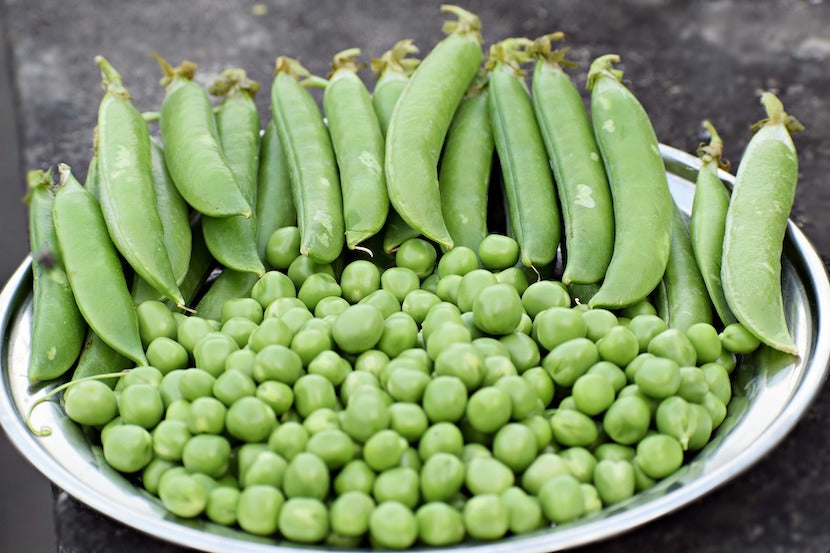If sugar snap peas are one of your go-to snacks or if you grow snow peas in your garden, you may want to share them with your bearded dragon. Or maybe thawing out a bag of sweet peas and tossing them in your bearded dragon’s next salad might seem like a good way to offer vitamins, minerals, protein, and fiber. Are peas safe and healthy for your bearded dragon to eat? If so, how often? Can bearded dragons eat peas?
Can Bearded Dragons Eat Peas? (Green Peas, Snap Peas, Snow Peas)
A starchy vegetable and legume, peas offer some important health benefits:
- Fiber for proper digestion
- Protein for muscle strength
- Vitamins A, C, and K for healthy eyes, immune system, and blood health
- Thiamine for the nervous system, heart, and brain
- Folate for tissue and cells
- Manganese for metabolism
- Iron for blood, bone, and organ health
- Antioxidants for reduced inflammation
However, because of two key nutritional issues, peas aren’t suitable for your bearded dragon to eat every day.
For one, peas have a moderate amount of oxalates, which work against calcium absorption in the body. If dragons eat peas every day, or any food with a moderate to high level of oxalates, they can develop metabolic bone disease, which seriously damages a dragon’s skeleton system, muscles, and tissues, sometimes to the point of paralysis.
Additionally, there is more phosphorus than calcium in peas. Raw green peas have a calcium to phosphorus ratio of 1:4.3, while snap peas have 1 to 1.2. Like oxalates, phosphorus depletes calcium in the body. Foods with a higher amount of phosphorus than calcium pose a risk of MBD to your dragon if they are consumed frequently.

How Often Can Bearded Dragons Eat Peas?
Considering their oxalates and phosphorus content in light of their nutritional benefits, green peas, snap peas, and snow peas should be perfectly fine for your dragon every other week. If you want to offer them weekly, you may want to pair them with a calcium-rich veggie such as collard greens or cactus pad to offset the potential damage that oxalates and phosphorus can cause.
Can Bearded Dragons Eat Frozen Peas and Canned Peas?
Of course, fresh peas are the most nutritious option for your dragon if possible. But canned and frozen food offers convenience, and it's always nice to have something on hand for emergencies. Bearded dragons can eat both canned and frozen peas, but it’s important to check the ingredients first to ensure there is no salt or added preservatives that could make your bearded dragon sick. Frozen peas are often a better choice than canned since it's easier to find bags of frozen peas without added ingredients.
Can Bearded Dragons Eat Pea Sprouts?
If you have a garden, you may want to share pea sprouts with your dragon along with peas. Bearded dragons can eat pea sprouts in small amounts, every other week or less often. A good source of Vitamins A and K, they also have a calcium to phosphorus ratio of 1 to 4.6, so they aren't useful as a staple veggie.
How to Prepare Peas for Your Bearded Dragon
Serving peas to your dragon is fairly simple:
- Fresh, frozen, or canned peas. Dragons can eat peas whole. Wash them thoroughly if they are fresh, drain them if the are canned, and thaw them if they are frozen (but don't heat them to avoid burning your dragon's mouth).
- Snap peas or snow peas. Dragons can eat pea pods if they are sliced or chopped to prevent choking.
Feel free to get creative with how you serve peas to your dragon! You can toss them in a salad or serve them on their own. You can also try offering them with fruit or insects.
If you have questions or feedback, we'd love to hear from you! Please email us at team@dragonsdiet.com








